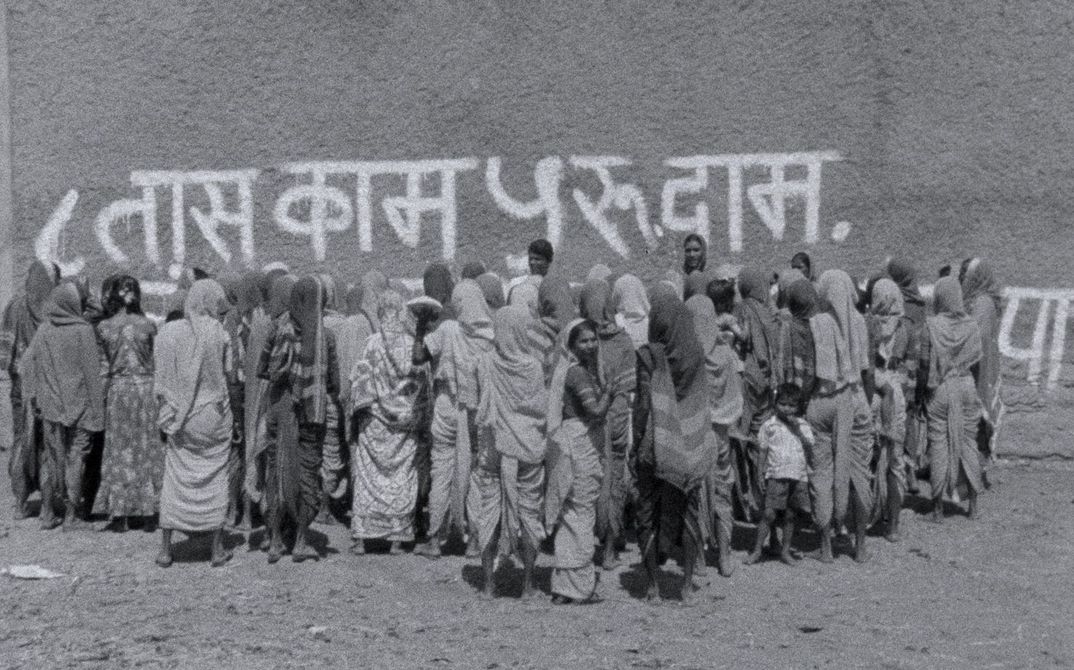The foundation of the Yugantar collective in 1979/1980 was sparked by the revolutionary energy on university campuses during the 1980s in India; by civil liberty and radical left movements; by land right struggles and an overall burst of creative activism that came with the unfolding of the autonomous women’s movement during the post-Emergency period. The collective’s name carried in itself the radical historical transformation – Yugantar, or “change to a new era”.
Yugantar’s films are also amongst the pioneers of state independent documentary filmmaking in India, which established itself progressively during the 1980s and 90s and thus need to be addressed as part of a nascent movement of independent political documentary in India. The acknowledgment of Yugantar’s work is vital in order to stress the undisputable importance of women filmmaker’s particular approach and the impact of feminist discourse on innovative and collaborative documentary practices and aesthetics within the Indian context and beyond.
“Living Archive—Archive Work as a Curatorial and Artistic Practice” offered a framework to digitally restore the film KYA HUA IS SHAHAR KO? and to publish it on a DVD with booklet subsequent to its re-screening within the Berlinale Forum 2013. Eventually Arsenal’s project “Archive ausser sich” (2017–2021) offered the opportunity to continue the work on the Yugantar films. The digital restorations of TAMBAKU CHAAKILA OOB ALI and IDHI KATHA MATRAMENA were first presented within the Berlinale Forum program in attendance of Deepa Dhanraj and Abha Bhaiya in 2019, followed by the premiere of SUDESHA at the festival Archival Assembly #1 in 2021.
At the time of production, a film like IDHI KATHA MATRAMENA was widely shown and discussed among feminist activists. Today, with digital copies, the Yugantar films are able to reach contemporary audiences, activists and unions in India again. We can see Yugantar’s films as living and continuously reactivated documents, as part of a continuously metabolizing feminist archive that takes its place in the present and in the future.
https://yugantar.film/



